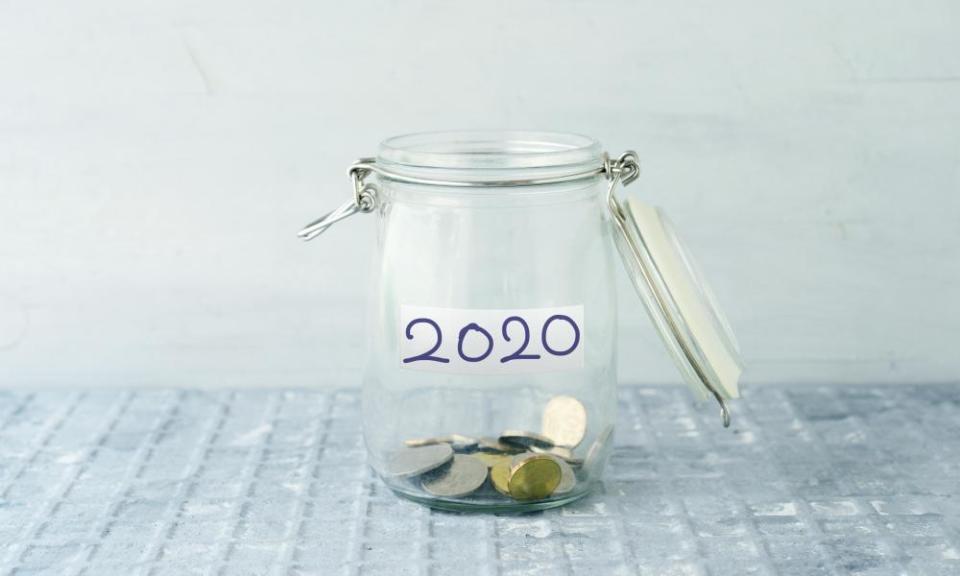Australian economic forecast hit by bushfires, low wage rises and high household debt

Economic growth will be lower than government forecasts for the rest of the decade as consumers battling persistently low wage rises and high household debt keep their wallets shut, ANZ’s chief economist says.
David Plank estimates growth in gross domestic product over the 2020s will be between 2% and 2.5% a year, well short of the 3% a year Treasury predicted the economy would hit within the next two years in an update issued in December.
Plank said the prospect of lower growth for longer meant the government should consider stimulus options including infrastructure spending and tax cuts for business.
Related: A new decade is likely to bring another year of low wages growth | Greg Jericho
The forecast follows a warning from the Swiss-based Bank of International Settlements that the climate crisis raises the possibility of “green swan” events that could cause an economic meltdown.
Australia’s economy has also been battered by last month’s unprecedented bushfires, which have devastated tourism areas and are estimated to have wiped between 0.1 and 0.2 points from GDP growth figures.
Plank said the underlying cause of the broader economic slowdown was not clear.
“In 10 years I might be able to tell you why,” he said.
But he said it seemed growth was being crimped by a lack of demand from Australian consumers, who are burdened by debts that on average are more than 200% of household disposable income.
“One of the reasons consumer spending has been soft is because consumers have in the past few years taken on debt with the expectation that wages growth would resume and make servicing that debt easier,” he told Guardian Australia.
“When wages growth doesn’t [occur], they’ve kind of ended up with more debt, relative to income, than they ideally want, and that might be one of the reasons consumers are cautious at the moment.”
He said infrastructure spending by state and federal governments was a good way to stimulate growth.
“I was at a client meeting last year and one of the clients in the room made the comment that the location of his buildings keeps getting better and better – not because he was moving his buildings but because the infrastructure around them was getting better, and that was encouraging him to invest,” he said.
“The tax cuts that are coming have the potential to reduce effective marginal tax rates, that’s a tick – they’re still a few years away.”
Treasurer Josh Frydenberg announced tax cuts in last year’s budget, but those for high-income earners don’t kick in until 2022-23.
Plank said the Productivity Commission had a long list of other ideas to improve Australia’s economic performance but said many of them would be politically difficult.
In a report released on Monday night, the BIS, which is an association of 60 central banks, said central banks needed to act in order to avoid financial collapses triggered by global heating.
Related: Most Australian chief executives believe climate crisis a threat to business
“These include what we call ‘green swan’ risks: potentially extremely financially disruptive events that could be behind the next systemic financial crisis,” the BIS said.
It said the best response to the climate crisis was a carbon tax, which was the responsibility of governments, not central banks.
In a foreword to the report, the governor of the Banque de France, François Villeroy de Galhau, said central banks “need to integrate climate change in all our economic and forecasting models”.
Central banks also needed to overhaul the way they valued assets “ to reflect climate-related risks”.
The BIS said a carbon price alone might not be enough to drive change because of the large amount of inertia in the global economic system.
“For instance, proactive fiscal policy may be an essential first step to build adequate infrastructure (eg railroads), before carbon pricing can really lead agents to modify their behaviour (eg by switching from car to train).”

 Yahoo News
Yahoo News 